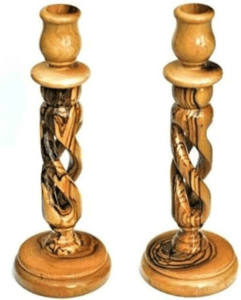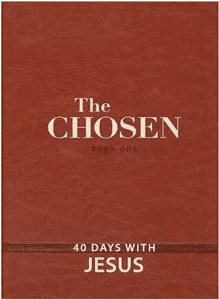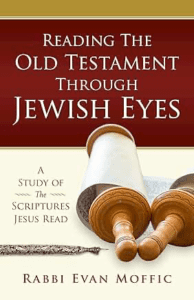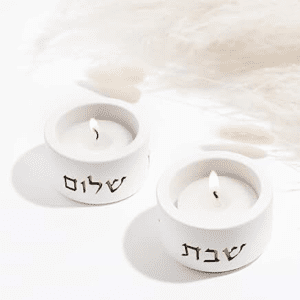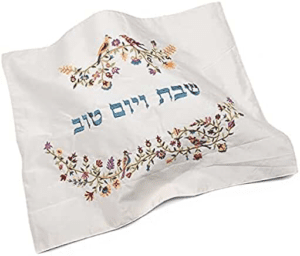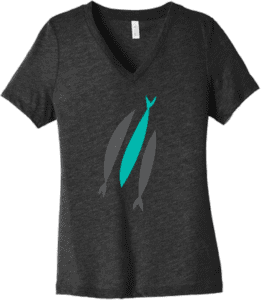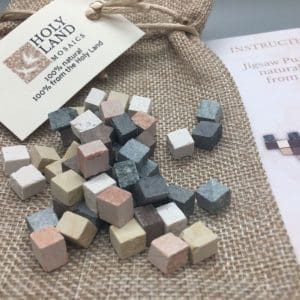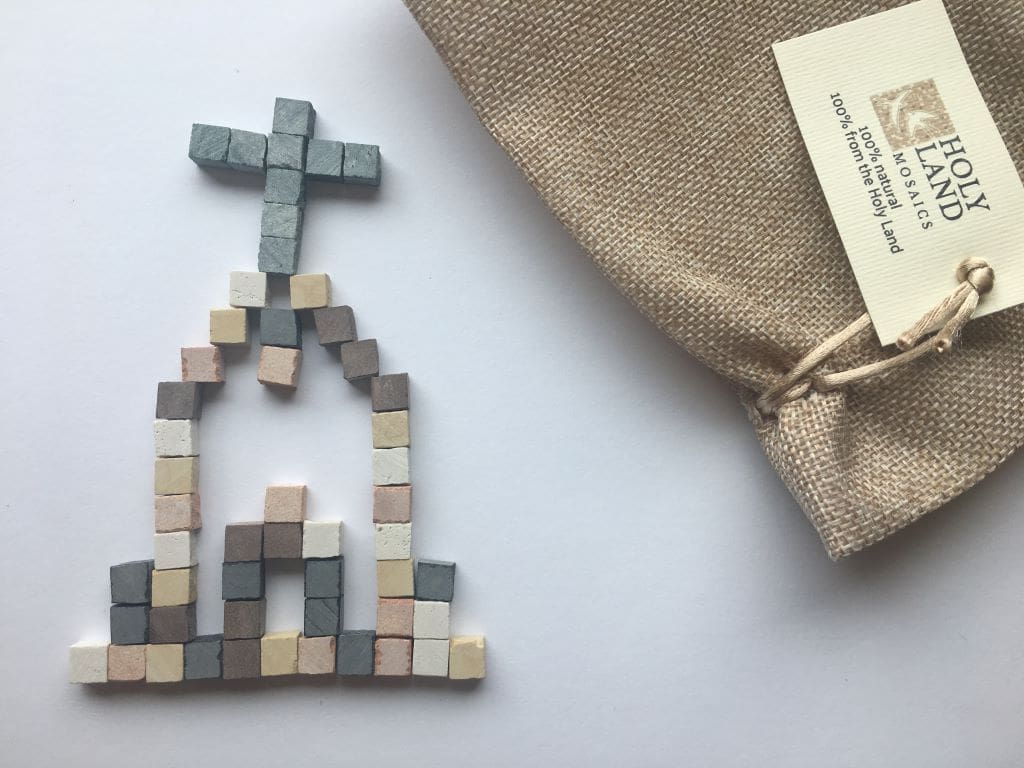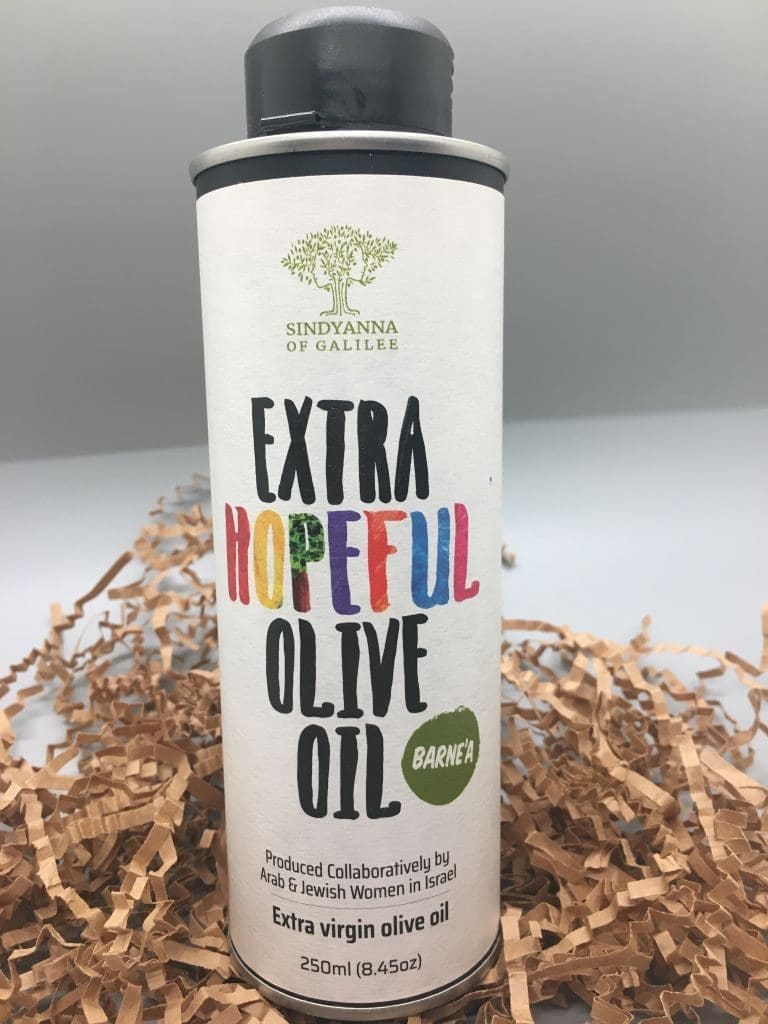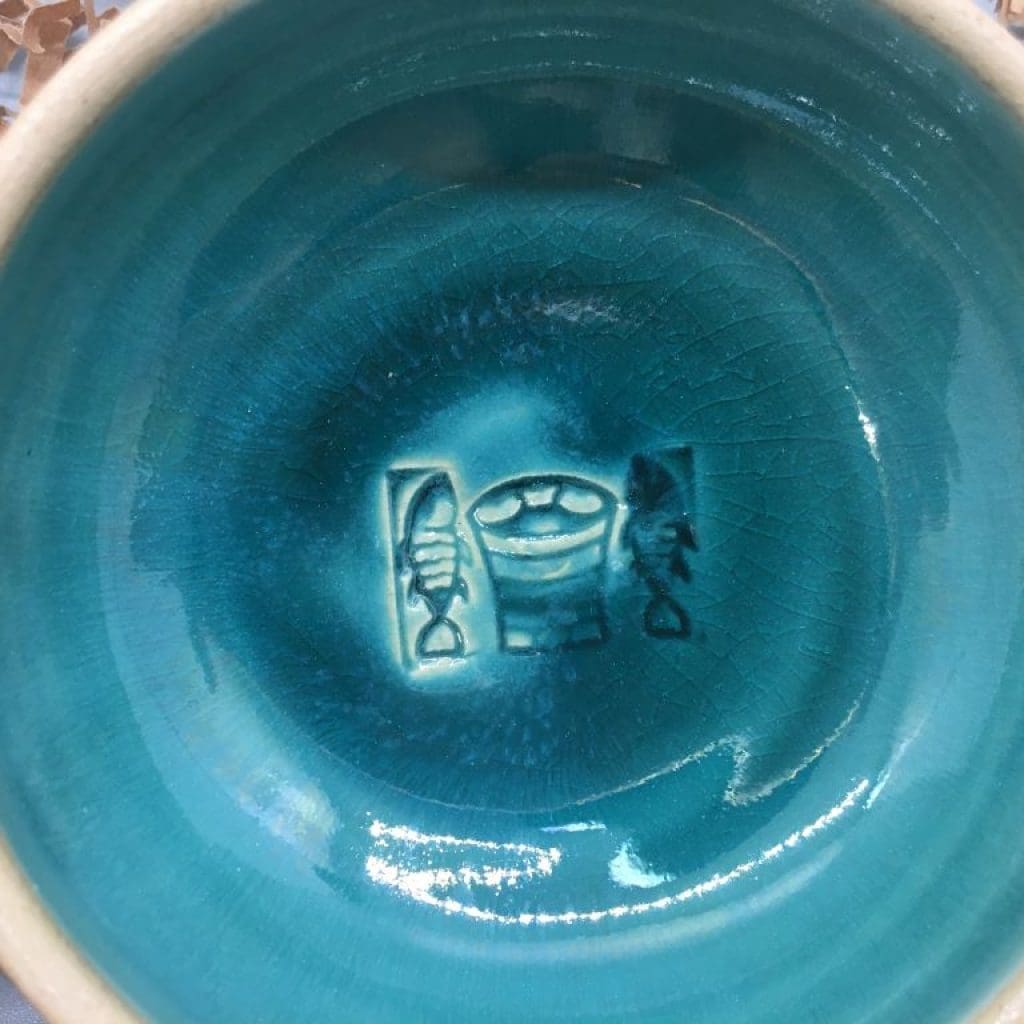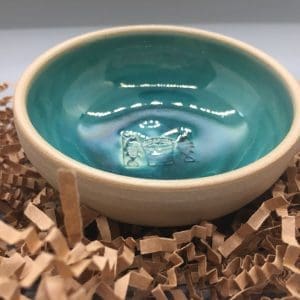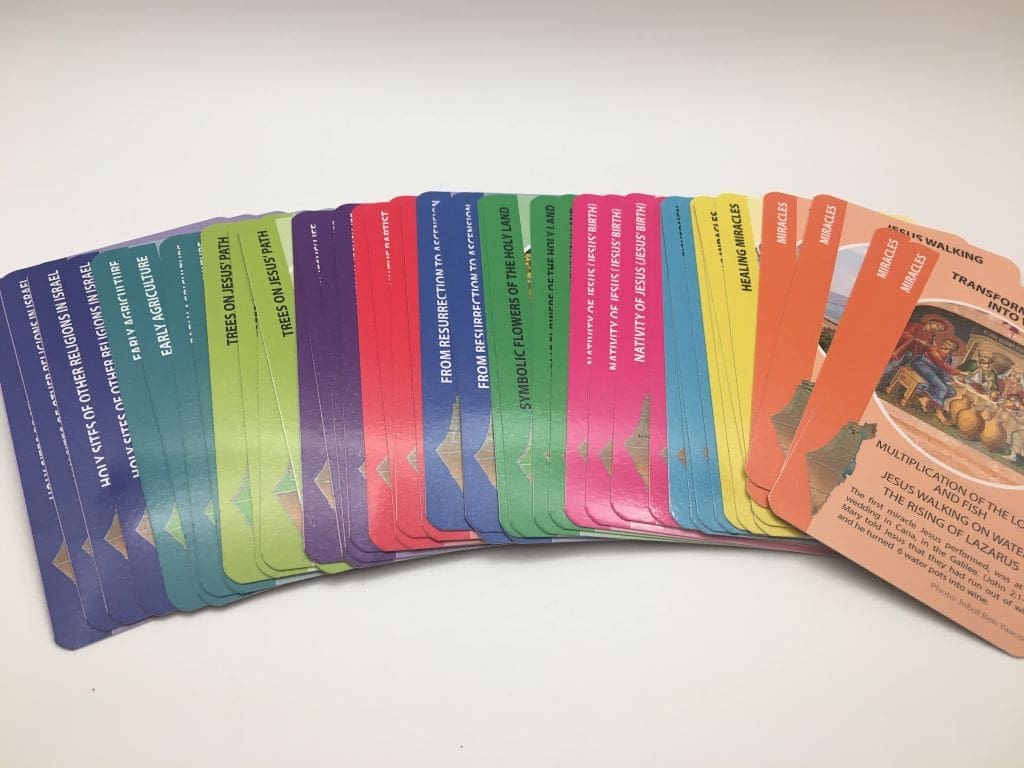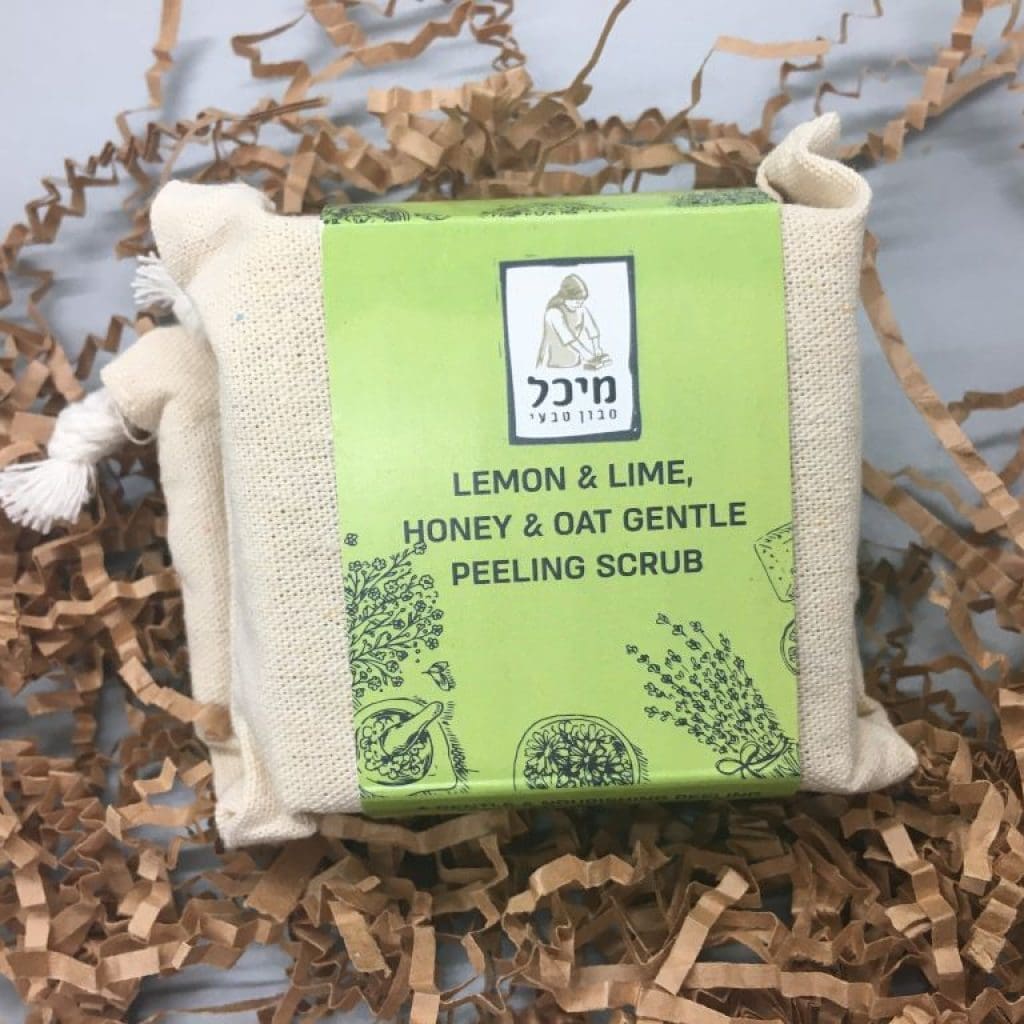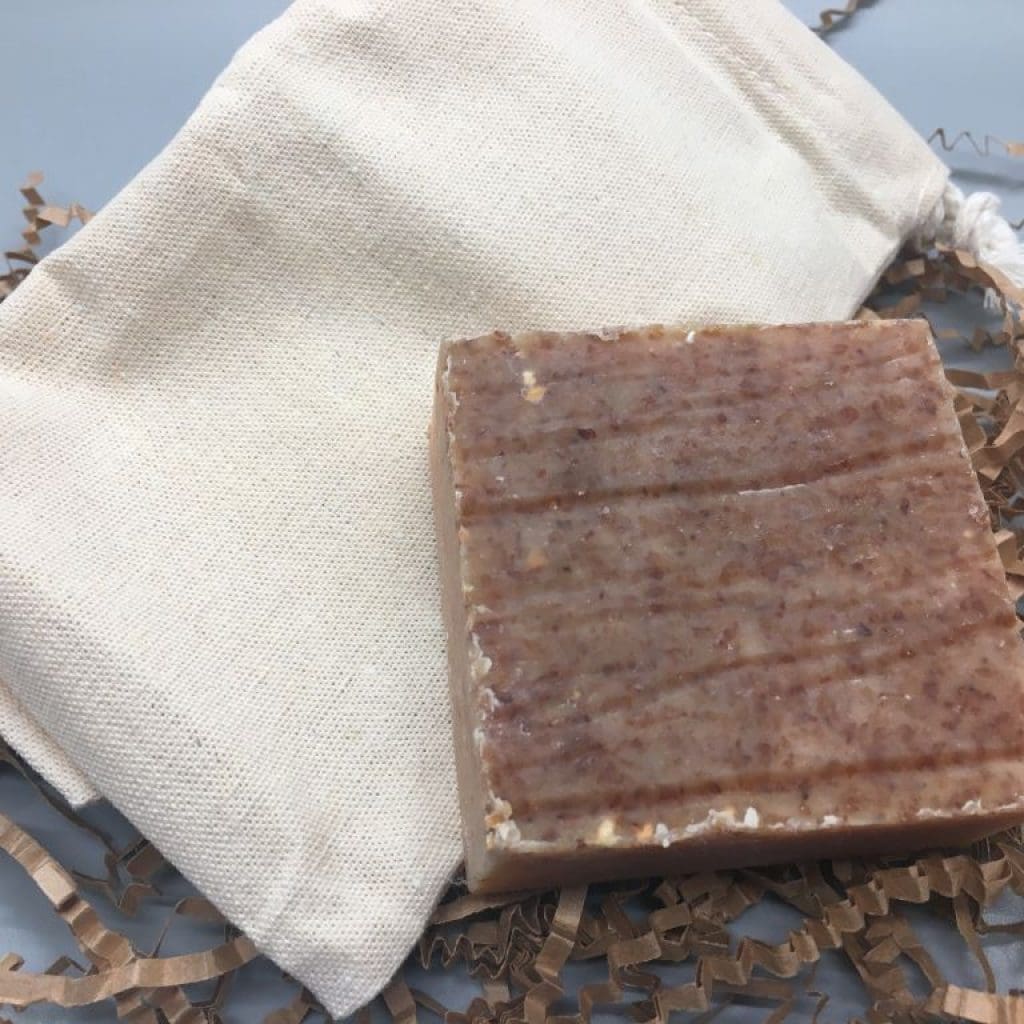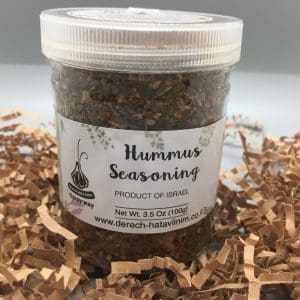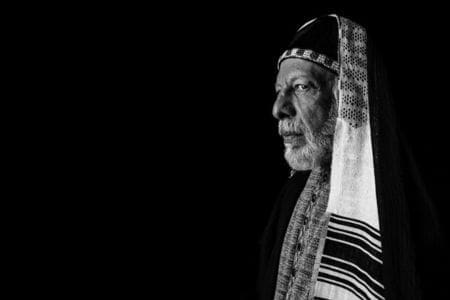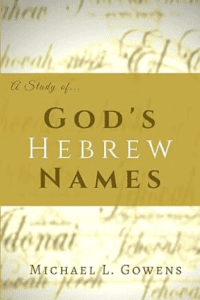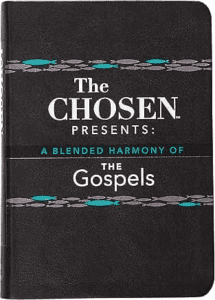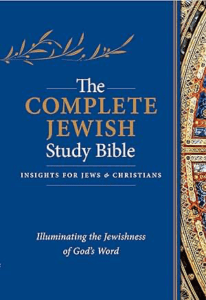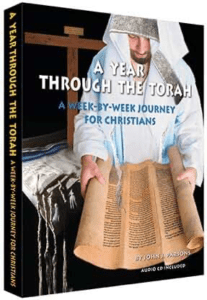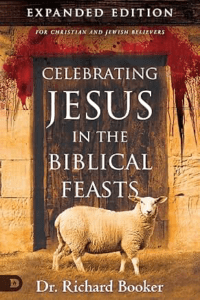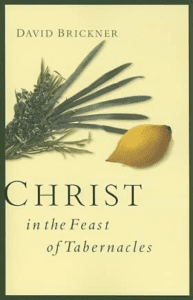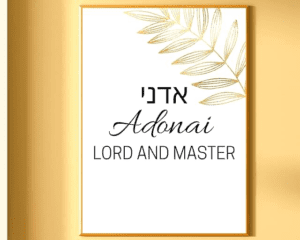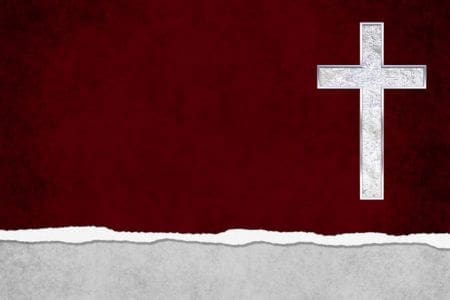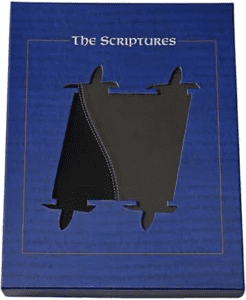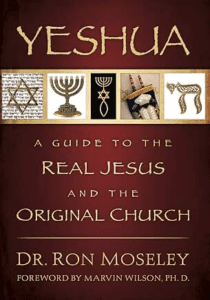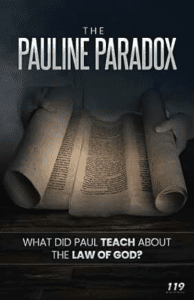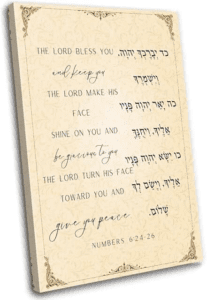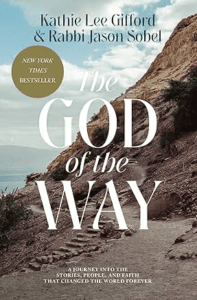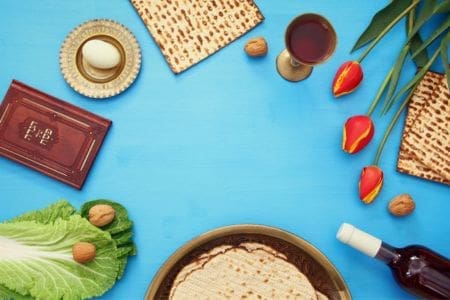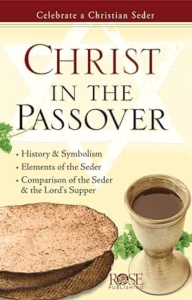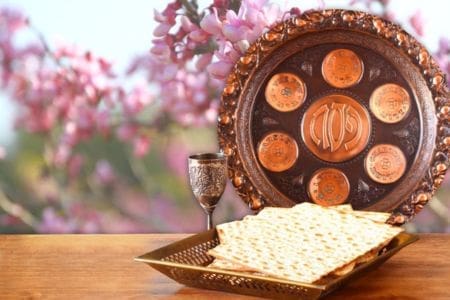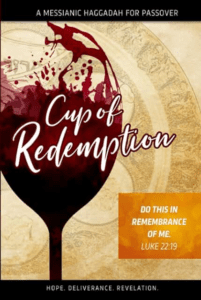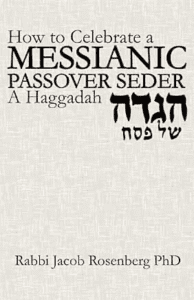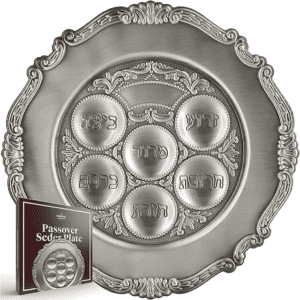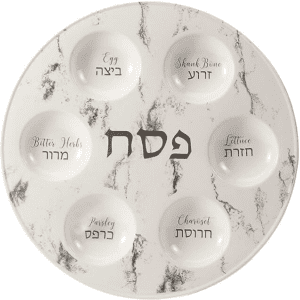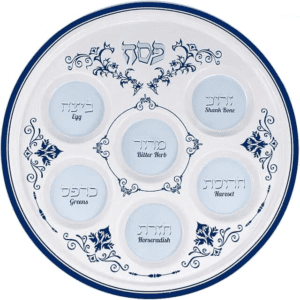Explaining the Chosen: Season 1, Episode 2: Shabbat
As I explained in my first post on The Chosen, I find this series unique to most Christian movies in that it’s interesting, with excellent acting and character development. Instead of being boring and forced, The Chosen is fun to watch and quickly engages the audience.
Being on a Hebraic Roots path as far as my faith goes, I notice things in The Chosen that I would have otherwise missed. These cultural nuances can help us understand not only the series but also our Christian faith and the lives of those in our Bible.
Here are some questions you may have about this episode and the answers. Caution! There may be spoilers ahead!
What is Shabbat?
The title of Episode 2 is Shabbat because that’s what we’ll witness in the lives of the characters. Shabbat is the Hebrew word for “Sabbath”. A Jewish Shabbat is from Friday evening to Saturday evening and there are many traditions that accompany this day.
In the first scene, the grandmother is talking to the grandson and says they’ve been observing Shabbat since the time of the Covenant. She’s referring to when the Hebrew people were given God’s commands at Mount Sinai. The command to observe the Sabbath originates even before Mount Sinai though. It’s one of the first given in the Bible. It’s in Genesis 2:3, where God blesses and sanctifies the Sabbath.
What you see the people doing while observing Shabbat is the traditional way Shabbat has been celebrated for centuries. Candles are lit, challah bread is served, and blessings are said over the family and the food. Shabbat starts in the evening, just after sundown, or when the first star is visible in the sky. The boy in the first scene points out the first star and Mary, toward the end of the episode, asks “Is the first star out?” so they know whether to begin their celebration.
A side note here: If you’ve never observed a traditional Shabbat, I encourage you to do so! These traditions are rich and Biblical and can bring your family together in ways you may have never experienced! When my family started observing the Sabbath weekly, it was a huge blessing in all of our lives!
What is the meaning of the candles?
The tradition of candle-lighting on Shabbat serves to set the Sabbath apart from every other day. Two candles are lit to symbolize the two commands given as far as the Sabbath goes. The first is to remember the Sabbath and the second is to observe it. When the candles are lit, the woman of the house says a blessing.
It’s said by the woman of the house because she’s the one who has typically done the most to prepare for the Sabbath. She’s baked the bread, cleaned the house, and set the table for Shabbat and now she stops, lights the candles and says the blessing to usher in a time of rest for her family.
This is the traditional blessing said over the candles.
Blessed are You, Lord our God, King of the universe, who has sanctified us with His commandments, and commanded us to kindle the light of the holy Shabbat.
In Hebrew, it’s:
בָּרוּךְ אַתָּה ה’ אֱלֹהֵינוּ מֶלֶךְ הָעוֹלָם, אֲשֶׁר קִדְּשָׁנוּ בְּמִצְוֹתָיו וְצִוָּנוּ לְהַדְלִיק נֵר שֶׁל שַׁבָּת קֹדֶשׁ
Which is pronounced:
Ba-rook ah-tah a-do-nai eh-lo-hay-noo meh-lekh ha-o-lam ah-sher ki-deh-sha-noo be-mitz-vo-tav veh-tzee-va-noo leh-hahd-lik ner shel sha-bat ko-desh
Our family says the following Messianic version of this blessing.
Blessed are you, Lord our God, King of the universe, who has sanctified us with His commandments and commanded us to be a light to the nations and Who gave to us Jesus our Messiah, the light of the world.
In Hebrew:
בָּרוּךְ אַתָּה יְהוָה אֱלֹהֵנוּ מֶלֶךְ הָעוֹלָם, אשֶׁר קִדְּשָׁנוּ בְּמִצְוֹתָיו, וְצִוָנוּ לְהִיוֹת אוֹר לְגוֹיִים וְנָתַן-לָנוּ אֶת יֵשׁוּעַ מְשִׁיחֵנוּ אוֹר הָעוֹלָם
Which is pronounced:
Ba-rook ah-tah a-do-nai eh-lo-hay-noo meh-lekh ha-o-lam ah-sher ki-deh-sha-noo be-mitz-vo-tav veh-tzee-va-noo le-hee-oat or le-go-yeem ve-na-tan-la-noo et Ye-shoo-a Me-shee-che-noo or ha-o-lam.
What is the Kiddush?
The Sabbath was set aside by God just after He completed the six days of creation. There are 3 components to the Kiddush: verses from Genesis that discuss the Sabbath, a blessing over the wine, and giving thanks to God for choosing and sanctifying the Nation of Israel.
In this episode, the Kiddush is said at the beginning by the man talking to a crowd of people and at the end by Mary in her home. Read it below.
And it was evening and it was morning, the sixth day. And the heavens and the earth and all their hosts were completed. And God finished by the Seventh Day His work which He had done, and He rested on the Seventh Day from all His work which He had done. And God blessed the Seventh Day and made it holy, for on it He rested from all His work which God created to function.
By your leave, Distinguished Ones, Masters, and Teachers! Blessed are You, Lord our God, King of the universe, who creates the fruit of the vine. (Response: Amen)
Blessed are You, Lord our God, King of the universe, who has hallowed us with His commandments, has desired us, and has given us, in love and goodwill, His holy Shabbat as a heritage, in remembrance of the work of Creation; the first of the holy festivals, commemorating the Exodus from Egypt. For You have chosen us and sanctified us from among all the nations, and with love and goodwill given us Your holy Shabbat as a heritage. Blessed are You Lord, who hallows the Shabbat. (Response: Amen)
And In Hebrew:
וַיְהִי עֶרֶב וַיְהִי בֹקֶר
יוֹם הַשִּׁשִּׁי. וַיְכֻלּוּ הַשָּׁמַיִם וְהָאָרֶץ וְכָל צְבָאָם
וַיְכַל אֱלֹהִים בַּיּום הַשְּׁבִיעִי מְלַאכְתּו אֲשֶׁר עָשָׂה. וַיִּשְׁבּת בַּיּום הַשְּׁבִיעִי מִכָּל מְלַאכְתּו אֲשֶׁר עָשָׂה
וַיְבָרֶךְ אֱלֹהִים אֶת יוֹם הַשְּׁבִיעִי וַיְקַדֵּשׁ אֹתוֹ. כִּי בוֹ שָׁבַת מִכָּל מְלַאכְתּו אֲשֶׁר בָּרָא אֱלֹהִים לַעֲשׂות
סַבְרִי מָרָנָן וְרַבָּנָן וְרַבּותַי
בָּרוּךְ אַתָּה ה׳ אֱֹלהֵינוּ מֶלֶךְ הָעוֹלָם בּוֹרֵא פְּרִי הַגָּפֶן
בָּרוּךְ אַתָּה ה’ אֱלֹהֵינוּ מֶלֶךְ הָעוֹלָם אֲשֶׁר קִדְּשָׁנוּ בְּמִצְוֹתָיו וְרָצָה בָנוּ וְשַׁבַּת קָדְשׁוֹ בְּאַהֲבָה וּבְרָצוֹן הִנְחִילָנוּ זִכָּרוֹן לְמַעֲשֵׂה בְרֵאשִׁית. כִּי הוּא יוֹם תְּחִלָּה לְמִקְרָאֵי קֹדֶשׁ זֵכֶר לִיצִיאַת מִצְרָיִם. כִּי בָנוּ בָחַרְתָּ וְאוֹתָנוּ קִדַּשְׁתָּ מִכָּל הָעַמִּים וְשַׁבַּת קָדְשְׁךָ בְּאַהֲבָה וּבְרָצוֹן הִנְחַלְתָּנוּ
בָּרוּךְ אַתָּה ה׳ מְקַדֵּשׁ הַשַּׁבָּת
Which is pronounced:
Va-ye-hee erev, va-ye-hee voker. Yom Ha-shishi. Va-ye-chulu hasha-mayim vi-ha-aretz vi-kole tzi-va-am. Va-yichal Elohim ba-yom hashe-vi’i milach-to asher asa. Va-yish-bat ba-yom hashe-vi’I mi-kole milach-to asher asa. Va-ye-varech Elohim es yom hashe-vi’i va-yi-kadesh oto. Kee voe sha-vat mi-kole milach-toe asher bara Elohim la-a-sot.
Sav-ri ma-ra-nan ve-ra-ba- nan ve-ra-bo-tai: Ba-ruch a-tah A-do-nai, E-lo-hei-nu me-lech ha-olam, bo-rei pe-ri ha-ga-fen. (Response: “Amen”)
Ba-ruch a-tah A-do-nai, E-lo-hei-nu me-lech ha-olam, asher ki-di-sha-nu be-mitz-votav vi-ratza vanu, vi-Shab-bat kod-sho be-a-ha-va uv-ra-tzon hin-chi-la-nu, zi-ka-ron le-ma-a-seh ve-re-sheet. Ki hu yom ti-chi-la le-mik-ra-ay ko-desh, zay-cher li-tzi-as mitz-rayim. Ki va-nu va-char-ta ve-o-ta-nu ki-dash-ta mi-kol ha-a-mim. Vi-shab-bat kod-shi-cha bi-a-ha-va uv-ra-tzon hin-chal-ta-nu. Ba-ruch a-tah A-do-nai, mi-ka-desh ha-shab-bat. (Response: “Amen”)
What are the blessings said over the wife and children?
Blessings are then said over the family members. There are different blessings for the wife and children, with different ones for boys and girls.
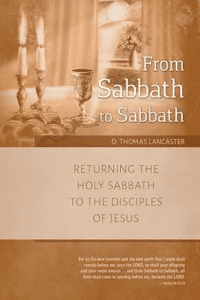
The Eschet Chayil (Woman of Valor)
This is the blessing said over the wife of the family by the husband. Taken from Proverbs 31, starting at verse 10, this is one blessing you’re probably already familiar with. In this episode, it’s said right at the beginning.
An excellent wife, who can find? For her worth is far above jewels.
The heart of her husband trusts in her, and he will have no lack of gain.
She does him good and not evil all the days of her life.
She looks for wool and flax and works with her hands in delight.
She is like merchant ships; she brings her food from afar.
She rises also while it is still night and gives food to her household and portions to her maidens.
She considers a field and buys it; from her earnings she plants a vineyard.
She girds herself with strength and makes her arms strong.
She senses that her gain is good; her lamp does not go out at night.
She stretches out her hands to the distaff, and her hands grasp the spindle.
She extends her hand to the poor, and she stretches out her hands to the needy.
She is not afraid of the snow for her household, for all her household are clothed with scarlet.
She makes coverings for herself; her clothing is fine linen and purple.
Her husband is known in the gates, when he sits among the elders of the land.
She makes linen garments and sells them and supplies belts to the tradesmen.
Strength and dignity are her clothing, and she smiles at the future.
She opens her mouth in wisdom, and the teaching of kindness is on her tongue.
She looks well to the ways of her household, and does not eat the bread of idleness.
Her children rise up and bless her; Her husband also, and he praises her, saying
“Many daughters have done nobly, but you excel them all.”
Charm is deceitful and beauty is vain, but a woman who fears the LORD, she shall be praised.
Give her the product of her hands, and let her works praise her in the gates.
Here it is in Hebrew:
אֵשֶׁת חַֽיִל מִי יִמְצָא, וְרָחֹק מִפְּנִינִים מִכְרָהּ.
בָּֽטַח בָּהּ לֵב בַּעְלָהּ, וְשָׁלָל לֹא יֶחְסָר.
גְּמָלַֽתְהוּ טוֹב וְלֹא רָע, כֹּל יְמֵי חַיֶּיהָ.
דָּרְשָֽׁה צֶמֶר וּפִשְׁתִּים, וַתַּֽעַשׂ בְּחֵפֶץ כַּפֶּיהָ.
הָיְתָה כָּאֳנִיּוֹת סוֹחֵר, מִמֶּרְחָק תָּבִיא לַחְמָהּ.
וַתָּקָם בְּעוֹד לַיְלָה, וַתִּתֵּן טֶרֶף לְבֵיתָהּ וְחֹק לְנַעֲרֹתֶיהָ.
זָמְמָה שָׂדֶה וַתִּקָּחֵהוּ, מִפְּרִי כַפֶּיהָ נָטְעָה כָּֽרֶם.
חָגְרָה בְעוֹז מָתְנֶיהָ, וַתְּאַמֵּץ זְרוֹעֹתֶיהָ.
טָֽעֲמָה כִּי טוֹב סַחְרָהּ, לֹא יִכְבֶּה בַלַּֽיְלָה נֵרָהּ.
יָדֶיהָ שִׁלְּחָה בַכִּישׁוֹר, וְכַפֶּיהָ תָּֽמְכוּ פָֽלֶך.
כַּפָּהּ פָּרְשָֹה לֶעָנִי, וְיָדֶיהָ שִׁלְּחָה לָאֶבְיוֹן.
לֹא תִירָא לְבֵיתָהּ מִשָּֽׁלֶג, כִּי כָל־בֵּיתָהּ לָבֻשׁ שָׁנִים.
מַרְבַדִּים עָשׂתָה־לָּהּ, שֵׁשׁ וְאַרְגָּמָן לְבוּשָׁהּ.
נוֹדָע בַּשְּׁעָרִים בַּעְלָהּ, בְּשִׁבְתּוֹ עִם זִקְנֵי־אָרֶץ.
סָדִין עָשׂתָה וַתִּמְכֹּר, וַחֲגוֹר נָתְנָה לַכְּנַעֲנִי.
עוֹז וְהָדָר לְבוּשָׁהּ, וַתִּשׂחַק לְיוֹם אַחֲרוֹן.
פִּֽיהָ פָּתְחָה בְחָכְמָה, וְתֽוֹרַת חֶֽסֶד עַל לְשׁוֹנָהּ:
צוֹפִיָּה הֲלִיכוֹת בֵּיתָהּ, וְלֶֽחֶם עַצְלוּת לֹא תֹאכֵל:
קָמוּ בָנֶֽיהָ וַיְּאַשְּׁרֽוּהָ, בַּעְלָהּ וַיְהַלְלָהּ:
רַבּוֹת בָּנוֹת עָֽשׂוּ חָֽיִל, וְאַתְּ עָלִית עַל כֻּלָּנָה:
שֶֽׁקֶר הַחֵן וְהֶֽבֶל הַיֹּֽפִי, אִשָּׁה יִרְאַת ה׳ הִיא תִתְהַלָּל:
תְּנוּ לָהּ מִפְּרִי יָדֶֽיהָ, וִיהַלְלֽוּהָ בַשְּׁעָרִים מַעֲשֽׂיהָ:
And here’s the pronunciation for the Hebrew:
E-shet Cha-yeel mi yeem-tza, ve-ra-chok meep-nee-neem meech-rah.
Ba-tach bah lev ba-a-lah, ve-sha-lal lo yech-sar. Ge-mal-at-hu tov ve-lo ra kol ye-mei cha-ye-ha.
Dar-sha tse-mer u-feesh-teem, va-ta-as be-che-fetz ka-pe-ha.
Hay-tah ka-o-nee-yot so-cher, mee-mer-chak ta-vi lach-ma.
Va-ta-kom be-od lai-lah, Ve-tee-ten te-ref le-vey-tah ve-chok le-na-a-ro-te-ha.
Zam-mah sa-deh ve-ti-ka-che-hu, meep-ree kha-pe-ha nat-ah ka-rem.
Chag-rah ve-oz mot-ne-ha, vat-a-metz z-ro-ote-ha.
Ta-a-ma ki tov sach-rah, lo yich-be va-lay-lah ne-rah.
Ya-de-ha sheel-cha va-kee-shor, ve-kha-pe-ha tam-chu pha-lech.
Ka-pah par-sah le-ani, ve-ya-de-hah sheel-cha la-ev-yon.
Lo tee-ra le-vei-tah mee-sha-leg, ki khol bei-tah la-vush sha-neem.
Mar-va-deem as-tah lah, shesh ve-ar-ga-man le-vu-shah.
No-dah bash-ar-eem ba-lah, be-shiv-to eem zik-nei ar-etz.
Sa-deen as-tah va-teem-kor, va-cha-gor nat-nah lak-na-ani.
Oz ve-ha-dar le-vu-shah, va-tees-chak le-yom eh-cha-ron.
Pee-ha pat-cha ve-chach-mah, ve-to-rat che-sed al le-sho-nah.
Tso-fee-ya hal-ee-chot bei-ta, ve-le-chem atz-lut lo toe-chel.
Ka-mu va-ne-ha vay-ash-ru-hah, ba-a-lah vay-hal-lah.
Ra-bot ba-not a-su cha-yil, ve-at a-leet al ku-la-nah.
She-ker ha-chen ve-he-vel ha-yo-fee, ee-shah yir-at a-do-nai hi teet-ha-lal.
Te-nu lah mip-ri ya-de-ha, vee-hal-lu-ha bash-a-reem ma-a-se-ha.
Blessings over the Children
The father traditionally says blessings over the children as well. There are different blessings for girls and boys and the Aaronic Blessing follows each.
For girls:
May you be like Sara, Rebecca, Rachel, and Leah.
In Hebrew:
יְשִׂימֵךְ אֱלֹהיִם כְּשָׂרָה רִבְקָה רָחֵל וְלֵאָה
Pronounced:
Ye-si-mech E-lo-heem ke-Sa-rah Riv-ka Ra-chel ve-Le-ah
For Boys:
May you be like Ephraim and Manessah.
In Hebrew:
יְשִׂימְךָ אֱלֹהיִם כְּאֶפְרַיְם וְכִמְנַשֶּׁה
Pronounced:
Ye-seem-cha E-lo-heem k-Ef-raim v-chi-Me-na-shey.
The Aaronic Blessing:
May God bless you and protect you.
May God show you favor and be gracious to you.
May God show you kindness and grant you peace.
In Hebrew:
יְבָרֶכְךָ יהוה וְיִשְׁמְרֶךָ יָאֵר יהוה פָּנָיו אֵלֶיךָ וִיחֻנֶּךָּ יִשָּׂא יהוה פָּנָיו אֵלֶיךָ וְיָשֵׂם לְךָ שָׁלוֹם
Which is pronounced:
Ye-va-re-che-cha A-do-nai v-yee-sh-me-re-cha
Ya-er A-do-nai pa-nav eh-le-cha vi-chu-ne-ka
Yee-sa A-do-nai pa-nav eh-le-cha v-ya-sem le-cha sha-lom
What is the blessing over the Bread?
If you look closely, you’ll see loaves of challah bread on the Shabbat tables of both Nicodemus and Mary. Challah is typically served on Shabbat and often 2 loaves are served in remembrance of the double portion of manna given to the Hebrew people by God in the wildness as provision for the Sabbath.
The blessing said over the bread on Shabbat is called the Hamotzi and is to recognize that God is the giver of our food. In the scene of Shabbat at Mary’s, you’ll hear the Hamotzi being said by Mary.
Blessed are You, Lord our God, King of the universe, who brings forth bread from the earth.
In Hebrew, it’s:
בָּרוּךְ אַתָּה יהוה אֱ‑לֹהֵינוּ מֶלֶךְ הָעוֹלָם הַמּוֹצִיא לֶחֶם מִן הָאָרֶץ
To pronounce:
Ba-rook ah-tah a-do-nai eh-lo-hay-noo meh-lekh ha-o-lam ha-mo-tzi le-chem meen ha-aretz.
What is the blessing over the wine?
There’s also a blessing said over the wine on Shabbat. It was included in the Kiddush above but is also sung by itself by the participants. It’s commonly called the Borei Pri Hagafen.
If you listen carefully (it’s overshadowed by the music) you can hear this blessing being said by the man to the crowd of people at the very beginning of this episode.
Blessed are You, Lord our God, King of the universe, Creator of the fruit of the vine.
In Hebrew:
בָּרוּךְ אַתָּה יְ‑יָ אֱ‑לֹהֵינוּ מֶלֶךְ הָעוֹלָם בּוֹרֵא פְּרִי הַגָּפֶן
And it’s pronounced:
Ba-rook ah-tah a-do-nai eh-lo-hay-noo meh-lekh ha-o-lam bo-rei pri ha-ga-fen.
What is the meaning of the names?
Here are some of the Hebrew names used in this episode, along with their meanings.
Savta
The little boy in the very beginning is talking to a woman he calls “Savta”. We know this woman is his grandmother because “Savta” is “grandma” in Hebrew.
Saba
The boy then mentions “Saba”, which means “grandpa” in Hebrew.
Eema & Abba
His “Savta” then mentions “Eema”, which means “mom” and “Abba”, which means “Dad”.
Baruch
One of the men in the pub, Baruch is a common Jewish name with both meaning and history. The word “Baruch” means blessed and it was also the name of the secretary of the prophet Jeremiah. He’s mentioned in the books of Nehemiah and Jeremiah and was a man of good character.
Rabboni
When people enter the house where Nicodemus is celebrating Shabbat, one couple greets him as “Rabboni”. This is a term of honor for a rabbi. Jesus was addressed at Rabboni in Mark 10:51 as well as John 20:16.
Why Did Jewish People Collect Taxes for Rome?
When Capernaum was under Roman rule, the Jewish people were required to pay taxes to the Romans, which were often exorbitant. They hired from within the Jewish people to collect these taxes, even though this caused the collectors to be hated by their fellow Jews.
Because of this hatred, Matthew says that his father says he has no son. We don’t know this from the Bible, but I’m sure you can imagine, as the makers of The Chosen did, how one would be disowned by his family for being a traitor to their people for doing this.
What’s the meaning of the joke about Absalom?
The men in the pub are joking with a man who has long hair and they compare him to Absalom. You may remember Absalom, the wayward son of David. You can read his story in 2 Samuel 13-19. He was killed while riding on his mule when he is caught by his head on a branch and left hanging mid-air. Yikes! What a way to go! It’s kind of a dark joke when Simon warns the long-haired man to “stay away from low hanging branches”.
Who are the Judges of the Sanhedrin?
The Sanhedrin was an assembly of Judges, made up of Jewish elders and rabbis. The Av Beit Din (who sent for Nicodemus in this episode) was the second in charge in this assembly. Believe it or not, there’s a Sanhedrin even today, although its existence and authority are controversial and under much debate among different Jewish groups.
What is Preparation Day?
If you’ve observed the Sabbath, you know just how much preparation needs to be done ahead of time in order to take a day off! For those that regularly celebrate Shabbat, Preparation Day is a must. On Friday, especially in the afternoon, people begin to look forward to the coming celebration and do what needs to be done to cook, clean, and organize to ensure everything is in place by the time Shabbat starts so everyone can rest.
Many and the other women are discussing preparations that need to be made: the house cleaned, candles purchased, and Challah bread made. They advise her to start in the afternoon to have time to get it all done before sundown.
What does Shabbat Shalom mean?
Shabbat is a celebration and is often a time for people to gather. In this episode, we see people greeting each other with a “Shabbat Shalom” on Shabbat or even just before. Shabbat Shalom very basically means “peaceful Shabbat”. What a wonderful way to greet each other!
Why does Mary cover her head?
Shmuel saw Mary (formerly known as Lilith) walking sanely around Capernaum after recognizing her as the demon possessed one Nicodemus had tried to exorcise. Nicodemus seeked her out and questioned what had happened to her, thinking it may have been related to the exorcism he performed.
When she found out he was a Pharisee, she looked nervous and covered her head right away. He then said he wasn’t there to enforce Jewish Law. While not commanded in the Torah (first 5 books of the Old Testament), covering one’s head was rabbinical law. Many Jewish men and women keep their heads covered today also. Some Hebrew Roots Christians do as well, out of piety and respect, especially in synagogues.
Why did Mary change her name?
When under possession of demons, Mary’s name was Lilith even though Mary was the name she was given at birth. The name Lilith is in the Bible very infrequently but it describes a creature that’s either a nocturnal animal (a screech owl, perhaps?) or maybe even a female night demon who haunts the land of Edom (Is. 34:14). Either way, it was not a term of endearment and she tells Nicodemus that she doesn’t answer to that name anymore.
What did Nicodemus mean when talking about the Hasmonean tapestry?
When Nicodemus and his wife, Zohara, admire the beautiful Hasmonean tapestry on the wall at the home where they’re celebrating Shabbat, Nicodemus refers in part to the story of Hanukkah. He talks about the oppression of the Jews by Antiochus IV. The tapestry was made during the Hasmonean period – a time when the Jewish people were so oppressed that few were left alive that didn’t assimilate into Greek culture. This story’s not in most Protestant Bibles but can be read in the Books of the Maccabees.
Why did Mary save a seat for Elijah at the Shabbat table?
This is another funny thing the brilliant writers of the Chosen included is Mary leaving a seat at the Shabbat table for Elijah. Having not celebrated Shabbat in a long time and this being the first she’s hosted, she has some of the traditions confused. A seat is often saved for Elijah at the table at Passover, not Shabbat!
The reason a seat is saved for Elijah at Passover is because of the promise in Malachi 4:5-6, which says that Elijah will return before the Messiah comes. There are other Passover traditions surrounding Elijah’s return, such as opening the door for him and pouring a glass of wine for him.
Why does Barnaby make a joke about Nazareth?
In John 1:46, Nathanael questions Phillip when Phillip says they have found Jesus of Nazareth. Nathanael asks “Can anything good come out of Nazareth?” and Phillip invites him to come and see and the rest is history. Nazareth wasn’t a place people respected, let alone somewhere they expected good things to come from.
When he learns that Jesus comes from Nazareth, Barnaby makes a slightly inappropriate joke at the table: “Apparently something good can come from Nazareth!” and everyone laughs after a moment of awkward silence.
I hope you found this episode as meaningful as I did and that I answered some of the questions you may have had while watching. Stay tuned for more posts explaining The Chosen. Here’s Episode 3: Jesus Loves The Little Children.
Do you love Israel?
Use coupon code Hebrew20 for a 20% discount on your order!
Need a gift for someone who does?
Experience the Holy Land without leaving home with Artzabox.
Click here to find yours!


